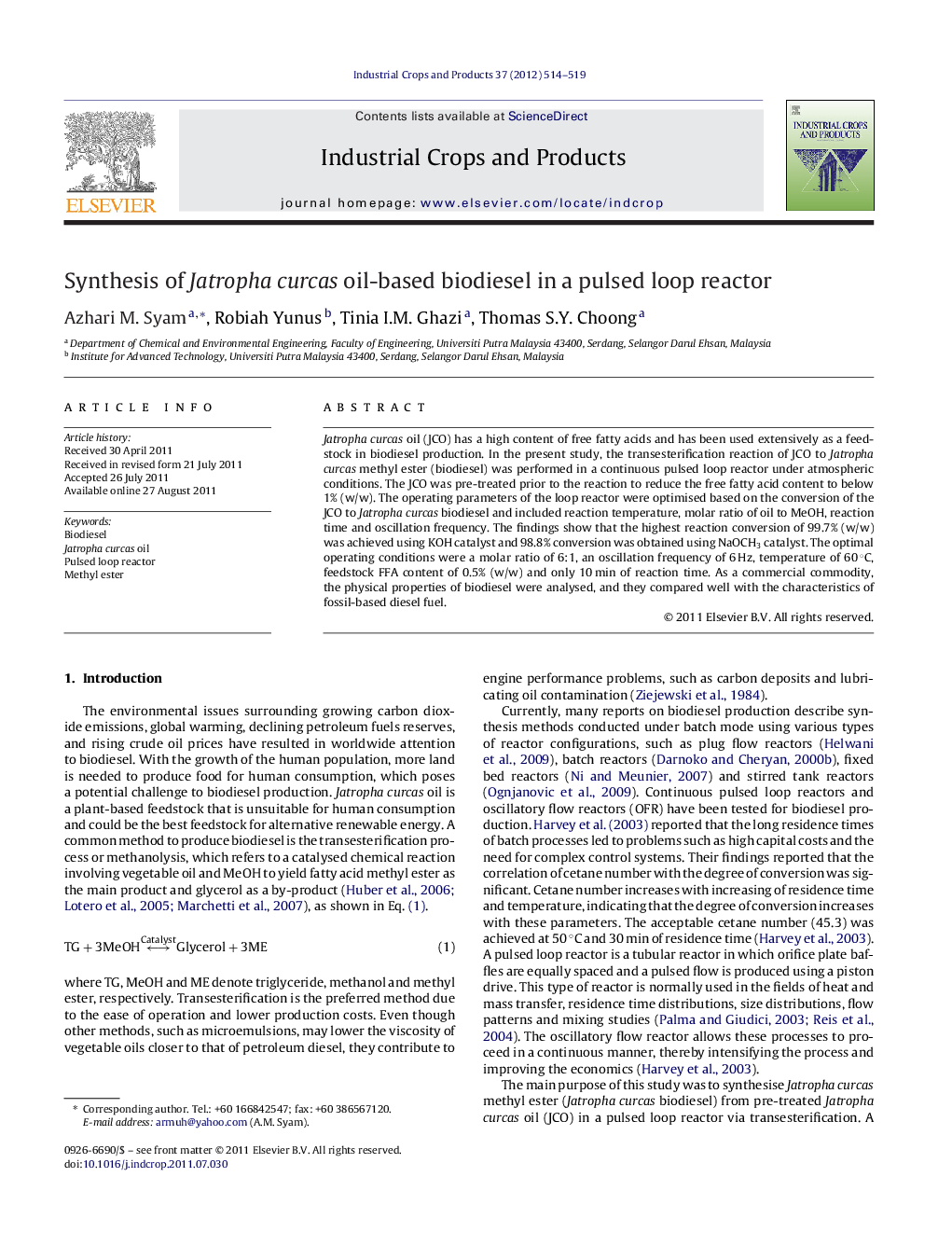| Article ID | Journal | Published Year | Pages | File Type |
|---|---|---|---|---|
| 4514264 | Industrial Crops and Products | 2012 | 6 Pages |
Jatropha curcas oil (JCO) has a high content of free fatty acids and has been used extensively as a feedstock in biodiesel production. In the present study, the transesterification reaction of JCO to Jatropha curcas methyl ester (biodiesel) was performed in a continuous pulsed loop reactor under atmospheric conditions. The JCO was pre-treated prior to the reaction to reduce the free fatty acid content to below 1% (w/w). The operating parameters of the loop reactor were optimised based on the conversion of the JCO to Jatropha curcas biodiesel and included reaction temperature, molar ratio of oil to MeOH, reaction time and oscillation frequency. The findings show that the highest reaction conversion of 99.7% (w/w) was achieved using KOH catalyst and 98.8% conversion was obtained using NaOCH3 catalyst. The optimal operating conditions were a molar ratio of 6:1, an oscillation frequency of 6 Hz, temperature of 60 °C, feedstock FFA content of 0.5% (w/w) and only 10 min of reaction time. As a commercial commodity, the physical properties of biodiesel were analysed, and they compared well with the characteristics of fossil-based diesel fuel.
► Jatropha curcas oil is a non food resource which is suitable for biodiesel feedstock. ► The oil with high content of impurities needs an acidic pre treatment prior to be used as transesterification limiting reactant. ► Alkali catalysed transesterification in a pulsed loop reactor is found as a proper method for biodiesel production because of a very short time of reaction is required. ► The properties of Jatropha curcas biodiesel are comparable to that of the petroleum-based diesel fuel.
